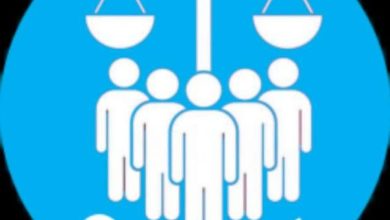Lack of Rehabilitation Centers Exposes Sexual Assault Survivors to Further Trauma
By Mercy Obot

Nigeria is among the countries with the highest prevalence of sexual violence due to its raging patriarchal societal setting, which has adversely influenced the norms and culture of most communities in the country.
The survivors of these heinous crimes, predominantly women, are at risk of experiencing severe health consequences due to a lack of accessible health and rehabilitation services in most communities in the country.
According to the United Nations, 1,200 rape cases were reported in Nigeria in 2020, while a report from Lagos police recorded 111 sexual assault cases between April and June 2023.

Furthermore, in Akwa Ibom State, the Secretary of the Gender-Based Violence Management Committee in the state, Barrister Emem Ette, said the committee has attended to a total of 1,467 cases of sexual and gender-based violence (SGBV) from 2021 until date.
Statistics from the National Demographic and Health Survey in 2018 reveal that a staggering 33% of women and girls between the ages of 15 and 49 have suffered physical or sexual abuse at some point in their lives.
Consequently, life stories from sexual assault survivors reveal that the issue can have a lifelong impact on them if they are not checked into rehabilitation centres, making them more vulnerable to further exploitation.
Speaking to Spotlight Initiative, Fatima Isiaku says the sexual abuse she suffered from her stepfather at age 5 caused her to drop out of school, run away from home, and also begin drinking.
Related: Rape: Akon Eyakenyi Wants Stiffer Punishment For Culprits
Isiaku says she was bullied and stigmatised by friends who later abandoned her, and even to this date, she is still facing discrimination stemming from her sexual assault.

Meanwhile, a survivor in Akwa Ibom State, who spoke on condition of anonymity, said that since she was raped years ago, she is still living with the trauma of the incident. It has caused her difficulty being intimate with her partner.
Becky Mahmud, a survivor who her pastor and uncle raped, shared her story on the Stand to End Rape initiative. Her voice trembled as she recounted the harrowing experience, and this expression illustrates that the trauma still lingers, maybe for a lifetime.
Survivors of these egregious offences often carry the scars of these soul-crushing encounters, which remain fresh in their minds. This is why these traumas need to be tackled in rehabilitation centres to facilitate their healing and recovery.
Reports gathered from medical professionals show that the aftermath effects of sexual violence can negatively impact the survivors’ daily lives, relationships and well-being if they do not receive comprehensive support and therapy in rehabilitation centres.
Delving into these challenges, it is believed that sexual abuse survivors are likely to experience persistent trauma symptoms like flashbacks. This perfectly fits Becky Mahmud’s situation when she was jittering while narrating her experience.
Read Also: A’Ibom Women Advocate For Establishment Of Special Courts To Handle GBV Cases
Another symptom of this trauma can be in the form of nightmares, where the individual has dreams that replay the horrific experience or evoke a feeling of fear, guilt, sadness or helplessness.
Some rape survivors get caught up in the web of depression, where they have prolonged hopelessness or intense emotion dysregulation, which can lead to self-destructive behaviours.
Just like Fatima Isiaku, who turned to drinking after being traumatized by her rape experience. Without therapy, most survivors engage in harmful activities like substance abuse, eating disorders, self-injury, prostitution or sex work, self-criticism, and suicidal ideation, among others.
Some even have difficulty being intimate with their partners, like the lady in Akwa Ibom State. There is bound to be a fear of physical contact because this can trigger the individual to remember the horrific experience, which can lead to emotional disconnection and hinder a healthy relationship between two intimate partners.
Self-blame and shame are also common insidious symptoms among sexual assault survivors. This is where they feel a deep-seated sense of shame, negatively talk to themselves, and blame themselves for the rape incidents, and this can gradually erode their self-esteem and overall wellbeing.
Additionally, the trauma of sexual assault can create long-lasting physical health problems like respiratory issues, chronic pain, sexual dysfunction, insomnia, epilepsy seizures, and mental health conditions like anxiety.
These aforementioned symptoms can be long-lasting if they are not carefully addressed. Sadly, societal stigmatisation and discrimination may prompt rape survivors to prolong their silence for ten years or more, thereby causing them to suffer in isolation.
With the alarming statistics of the prevalence of rape cases in Nigeria, this means there are many survivors of sexual violence, and they are in dire need of medical care and support services.
Rehabilitation centres can provide a safe space for these survivors to heal and rebuild their lives. In these centres, the service providers offer therapy and counselling to help survivors process their traumas by addressing their physical, emotional, and spiritual needs and enhancing their overall well-being.
The centre also helps in reintegrating the survivors into society by assisting them in rebuilding their relationships, rediscovering hope, building resilience and developing a renewed sense of purpose.
To get more adequate rehabilitation centres for sexual assault survivors in Nigeria, there is a need for all hands to be on deck for this purpose to be achieved.
The state governments can play a vital role by allocating more resources for the building and maintenance of rehabilitation centres in rural areas within their respective states.
Similarly, non-governmental organisations (NGOs) can complement the efforts of governments by partnering with them alongside private individuals to enhance the welfare of these rape survivors.
Moreover, it is essential to train healthcare workers on how to provide effective healthcare services to these survivors, and there is a need to advocate for policies that will support the establishment of rehabilitation centres in communities.
When these relevant agencies collaborate and create a network of support, they can empower the sexual survivors in their respective constituencies, liberating many people from the isolation that often comes with trauma and giving these individuals an opportunity to thrive in life.




